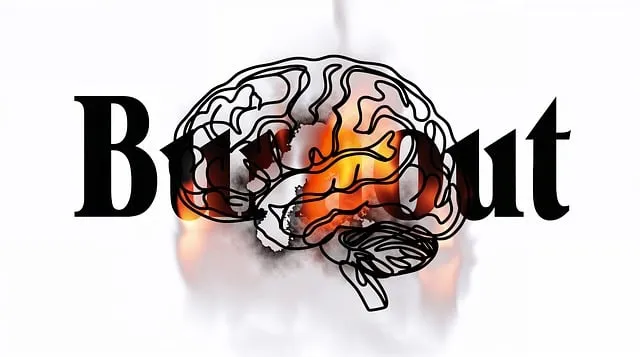Louisville's Crisis Intervention Teams (CITs), supported by Louisville Kaiser Permanente's comprehensive mental health coverage, are key to managing crises and promoting community well-being. These teams, comprising professionals with specialized training, enhance first responders' skills in emotional regulation and empathy, de-escalating high-stress situations. The CIT program, coupled with Kaiser Permanente's mental health initiatives, fosters a culture of resilience and open dialogue about mental health. Through comprehensive coverage, education, and community outreach, Louisville is revolutionizing access to immediate support for mental health crises, ensuring long-term stability for individuals in distress.
In Louisville, crisis intervention teams (CITs) play a vital role in addressing mental health crises. With support from Kaiser Permanente’s comprehensive mental health coverage, these teams have become a game-changer in community wellness. This article explores CIT training programs, highlighting their essential components for effective crisis response. We delve into preparing professionals with skills tailored for real-world scenarios and emphasize the importance of community integration to expand the reach of these lifesaving initiatives, particularly focusing on Louisville’s Kaiser Permanente mental health coverage.
- Understanding Crisis Intervention Teams: Their Role and Impact in Louisville
- Kaiser Permanente Mental Health Coverage: A Supportive Framework
- Training Programs: Essential Components for Effective Crisis Response
- Preparing Professionals: Skills and Techniques for Real-World Scenarios
- Community Integration: Expanding the Reach of Crisis Intervention Teams
Understanding Crisis Intervention Teams: Their Role and Impact in Louisville

In Louisville, Crisis Intervention Teams (CITs) play a vital role in addressing mental health crises and improving community well-being. These specialized teams, often composed of police officers, paramedics, and mental health professionals, are trained to handle high-stress situations involving individuals experiencing severe emotional distress or thoughts of suicide. By integrating CIT members into the response framework, Louisville aims to enhance the quality of care provided during critical moments.
Louisville Kaiser Permanente’s commitment to mental health coverage further supports these efforts by ensuring access to comprehensive treatment options. The presence of CITs equips first responders with essential skills in Mental Health Awareness and Empathy Building Strategies, fostering a culture of emotional regulation within the community. This collaborative approach not only de-escalates potentially dangerous situations but also promotes better long-term outcomes for individuals facing mental health challenges.
Kaiser Permanente Mental Health Coverage: A Supportive Framework

Louisville Kaiser Permanente mental health coverage offers a robust framework to support individuals navigating crises. This comprehensive program recognizes the importance of addressing mental well-being as an integral part of overall healthcare, especially in high-pressure environments like healthcare settings. By integrating mental health services into their routine care, Kaiser Permanente fosters a culture of resilience and burnout prevention among its providers, a crucial aspect of maintaining quality patient care.
The supportive framework extends beyond coverage, encompassing various initiatives to combat burnout. These include communication strategies that encourage open dialogue about mental health challenges. By promoting an environment where healthcare providers feel empowered to seek support and share their experiences, Louisville Kaiser Permanente aims to implement effective burnout prevention strategies tailored to the unique demands of the medical profession.
Training Programs: Essential Components for Effective Crisis Response

Crisis intervention team (CIT) training programs are essential components for effective crisis response, especially when addressing mental health issues in communities. These programs equip individuals with the necessary skills to support those facing emotional distress or a psychiatric emergency. In Louisville, for instance, Kaiser Permanente’s mental health coverage highlights the importance of such initiatives by providing access to specialized care and services.
The key elements of successful CIT training include emotional regulation techniques, empathy building strategies, and public awareness campaigns development. By teaching participants how to recognize and manage their own emotions, as well as understand and connect with others’ feelings, these programs foster a supportive environment. Additionally, raising public awareness about mental health challenges and available resources ensures that individuals in crisis receive timely and appropriate assistance, ultimately enhancing community resilience.
Preparing Professionals: Skills and Techniques for Real-World Scenarios

In the dynamic field of crisis intervention, professionals must be adept at handling real-world scenarios that can vary widely in intensity and complexity. Training programs for these teams, like those offered by Louisville Kaiser Permanente mental health coverage, play a pivotal role in preparing practitioners to manage critical situations effectively. The focus is on honing skills and techniques that cater to diverse populations, ensuring interventions are tailored to individual needs. Through interactive simulations and role-playing exercises, participants gain practical experience in de-escalation strategies, active listening, and crisis management—essential tools for navigating emotional and psychological distress.
These training programs also emphasize the importance of mental health education, equipping professionals with knowledge about various mental health conditions, stress reduction methods, and positive thinking techniques. By integrating these aspects into their skill set, intervention teams can offer comprehensive support, fostering not just immediate stability but also long-term resilience among those in need.
Community Integration: Expanding the Reach of Crisis Intervention Teams

Louisville’s Kaiser Permanente mental health coverage has sparked a movement to expand crisis intervention team (CIT) training beyond hospital walls. By integrating CIT programs into the community, residents can access immediate support for mental health crises in their own neighborhoods. This approach not only enhances accessibility but also promotes anxiety relief and resilience building through proactive community outreach program implementation.
By bringing CIT training to community centers, schools, and faith-based organizations, Louisville is fostering a network of individuals equipped to recognize and respond to mental health emergencies. This collaborative effort ensures that those in need don’t have to travel long distances or wait for assistance, providing a more efficient and effective safety net for the entire community.
Crisis intervention team training programs are vital for fostering effective crisis response in communities like Louisville, where access to mental health resources, such as those offered by Kaiser Permanente, is crucial. By equipping professionals with essential skills and techniques, these programs enable better navigation of real-world scenarios related to mental health crises. Moreover, integrating community support expands the reach of crisis intervention teams, ensuring a more comprehensive approach to addressing behavioral health challenges. In light of the significant impact on individuals and communities, continued investment in training is essential for enhancing crisis response capabilities, particularly within the context of Louisville’s Kaiser Permanente mental health coverage framework.






